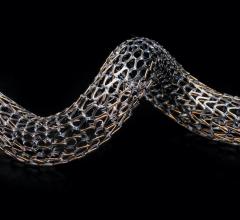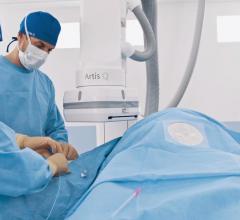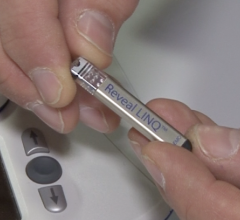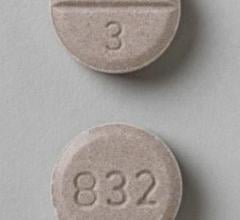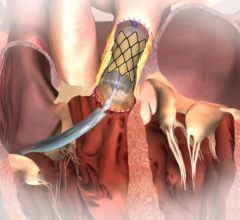March 17, 2017 - Transcatheter aortic valve replacement (TAVR) was found to be noninferior to surgical aortic valve ...
W. L. Gore & Associates Inc. recently announced the Health Canada approval of the Gore Tigris Vascular Stent, a dual-component stent with a fluoropolymer/nitinol design. The device, which gained CE Mark approval in 2011, is a third-generation, self-expanding stent that was designed explicitly to improve anatomical conformability with the natural movement of the knee when treating peripheral artery disease (PAD).
Alcohol abuse increases the risk of atrial fibrillation, heart attack and congestive heart failure as much as other well-established risk factors, according to a study published recently in the Journal of the American College of Cardiology.
Providing exceptional cardiovascular care for patients to achieve the best possible outcomes is the number one goal for ...
During the 66th Annual Scientific Session & Expo of the American College of Cardiology (ACC), March 17-19 in Washington, D.C., Siemens Healthineers will showcase technologies that integrate images and information at every step of the treatment process, with a theme of “Making Complex Simple.”
A new document from the American Society of Echocardiography (ASE) provides a comprehensive update to guide clinicians in best practices for assessing all forms of valvular regurgitation.
Medtronic plc announced U.S. Food and Drug Administration (FDA) 510(k) clearance for its Reveal LINQ Insertable Cardiac Monitor (ICM) with TruRhythm Detection. The advanced cardiac monitor offers improved accuracy to better identify abnormal heartbeats.
Cardiac positron emission tomography (PET) is growing in popularity among cardiologists because it provides the ability ...
The U.S. Food and Drug Administration (FDA) has cleared the Artis pheno robotic C-arm angiography system from Siemens Healthineers created for use in minimally invasive interventional procedures.
Using marijuana raises the risk of stroke and heart failure even after accounting for demographic factors, other health conditions and lifestyle risk factors such as smoking and alcohol use, according to new research. The study is scheduled for presentation at the American College of Cardiology’s 66th Annual Scientific Session, March 17-19 in Washington, D.C.
Pam Rush, RN, MS, clinical program director, cardiovascular service line, and Craig Strauss, M.D., MPH, medical director ...
When performing radiofrequency (RF) ablation to treat cardiac arrhythmia, medical professionals must balance the safety ...
The Society of Interventional Radiology (SIR) presented its highest honor, the SIR Gold Medal, to three individuals during its 2017 Annual Scientific Meeting, March 4-9 in Washington, D.C. These awards acknowledge distinguished and extraordinary service to SIR or to the discipline of interventional radiology.
Noninvasive computed tomography (CT) angiography and stress tests can help predict which patients are likely to suffer a heart attack or other adverse cardiovascular event, according to a new study appearing online in the journal Radiology.
Climbing above 4,000 meters can provoke abnormal heart rhythms in otherwise healthy mountaineers, with the abnormalities increasing with altitude, new research has shown.
Change Healthcare Cardiology Hemodynamics is an integrated hemodynamic monitoring system for monitoring vital signs and ...
Researchers supported by the National Institutes of Health have revealed the ability of wearable biosensors, similar to the Apple Watch or Fitbit, to detect physiological changes that may indicate illness, even before symptoms appear. The findings, published Jan. 12, 2017, in PLoS Biology, may open the door to new ways to manage and monitor health, especially for those with limited access to doctors or clinics.
More than 80 percent of stroke patients with a history of atrial fibrillation either received not enough or no anticoagulation therapy prior to having a stroke, according to a Duke Clinical Research Institute study. This revelation comes despite the drugs’ proven record of reducing stroke risk.
March 14, 2017 — The United States Food and Drug Administration (FDA) has expanded use of the Medtronic Melody ...

 March 17, 2017
March 17, 2017
